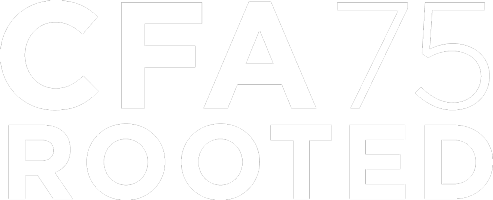This is a series dedicated to highlighting the insights our students gained during their internships.
Name: Camille Washington, Department of Art & Art History
Internship: New Langton Arts in San Francisco, California
What responsibilities did you have as an intern?
New Langton Arts was a small, multidisciplinary arts space with a performance/screening space on the ground level, and an exhibition space on the second level. I functioned as a gallery assistant during a special program called Five Habitats: Squatting at New Langton Arts (details by the designing architect here). It was five weeks of one-week exhibitions with five curators who chose five artists/collectives per week. I painted, cleaned, made supply runs, helped build the installation "pods," oversaw AV installation when needed, coordinated artist arrivals, worked the bar at openings, took exhibition photos, drafted gallery guides, composed wall labels, packed/unpacked shipped art, took notes at board and committee meetings, worked the front desk during opening hours, and so on. Since it was essentially an entire year's worth of exhibitions in five weeks, it was a crash course in the day-to-day functioning of a visual arts nonprofit, from top to bottom. The only things I didn't do were work on budgets or grant applications.
What new skills/knowledge did you gain from your internship?
It's hard to narrow down. Now I see it as the synthesis and application of all the skills I had been building through college, and a real education in the grind of nonprofit work. It exposed my shortcomings as an analytical thinker, and made me eager to study the history of exhibitions and learn more contemporary philosophy/theory that underpins so much of post-war artistic practice and spatial relations. My internship was like an antidote to the lecture-based learning of my undergraduate work, and gave me the courage to learn and experience more in contemporary art.
What connections did you make and how do you think those connections may help you in your career?
ArtTable Inc., the organization that set me up with the internship and a mentor, connected me with an admissions dean at the San Francisco Art Institute. She toured me around the historic Chestnut street campus, and then set me up with the director of their new (at the time) Exhibition and Museum Studies Master of Arts Program. I applied to the program the following spring and was accepted. It was a really exciting time at SFAI and there were some very influential thinkers and makers on staff: Hou Hanru, Okwui Enwezor, Renee Green, Julian Myers Szupinksa, etc. I studied with them all. Lots of Derrida and Foucaut and Fanon and all that stuff. Judith Butler, my GOD. But there was always a slight irreverence to art historical canon, and an emphasis on challenging institutions and art world norms. Those people were always very generous, and gave me great recommendations after I graduated.
What advice would you give other students who are interested in a similar internship?
Take the chance. Consider the less obvious choice of mentor, program, etc. It can pay off in unexpected ways. You can be pragmatic without sacrificing a sense of adventure.
How did your internship compliment your arts education?
I was able to put the ideas into action, and to consider the physical/vocational aspects of a field that, to me, seemed really distant and stuffy. It also introduced me to fascinating people who do the thinking and the writing and the designing and the doing outside of academia.
Are there other things you would like to tell us?
Learn to open and pour a bottle of wine (corked, twist top, etc.) with confidence, even if you don't drink. But don't make a big deal about it. Queer, cisgender, white men are everywhere in the arts but that doesn't absolve the institutions - big to small - from needing more diversity (not just people, in thought and practice, too). Be skeptical of any place or person who says otherwise. Human resource departments exist to protect the businesses/institutions not the employees. Get to know your rights as a worker.


